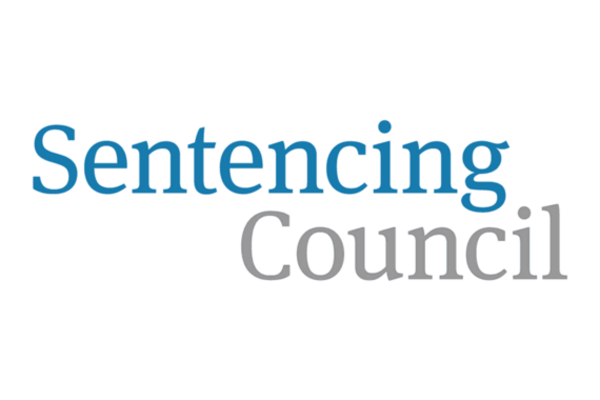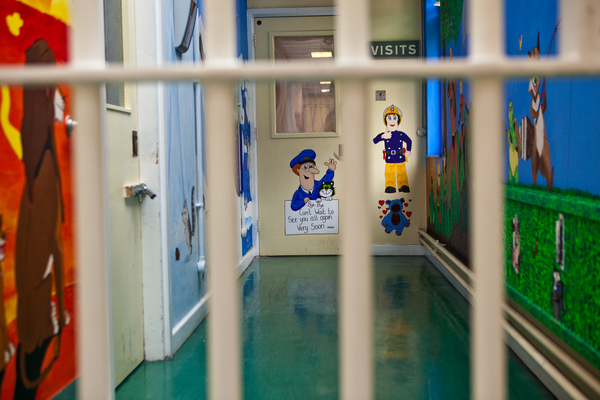New BBC Sounds series ‘Wrongly Accused: The Annette Hewins Story’ highlights woman’s traumatic birth while on remand in prison.
New BBC Sounds podcast series ‘Wrongly Accused’ tells the story of a deadly fire and the wrongful conviction of Annette Hewins for arson. After three years in prison, Annette’s sentence was quashed. In this powerful series, her daughter Nicole uncovers the extent of this miscarriage of justice.
Episode 4 of ‘Wrongly Accused’, available from today, focuses on Annette’s pregnancy and birth while held on remand at Eastwood Park prison in 1996, awaiting trial for a crime she didn’t commit.
Annette was pregnant with her son Joshua when she entered prison. Her three children under four were being cared for by their father. She made several applications for bail throughout her pregnancy, right up until she was just a few weeks off her due date, but all were denied. The Head of Maternity in the prison suggested she should have an abortion.
Details shared in the series include Annette’s traumatic birth while on transfer from the prison to the hospital, and the difficult decision she had to make about the care of her newborn baby, Joshua.
In Episode 4, Naomi Delap, Director of Birth Companions, speaks to Annette’s daughter Nicole Jacob, who hosts the podcast.
Delap said:
“This compelling series spotlights a heartbreaking and appalling miscarriage of justice, with a tragic end. It also shines a light on the serious risks the prison system poses to pregnant women and mothers of young children.”
Annette entered prison while pregnant in 1996 without having been found guilty of the crime for which she was charged, and then later acquitted. In the very same year, Birth Companions was set up by a group of antenatal teachers in north London to provide voluntary support for pregnant women and new mothers in HMP Holloway.
Birth Companions was created following secret filming, aired on Channel 4, of a woman in custody at HMP Holloway, who was chained to prison officers while in labour. The nation was shocked by the televised images of the woman – by coincidence also called Annette – who was handcuffed while giving birth. That story, bravely shared by Annette and those supporting her, and the shocking account of Annette Hewins, so powerfully told by her family, show how awful the practices were around pregnancy, birth and postnatal care in prison.
Delap added:
“While we have worked tirelessly since 1996 to drive improvements in this area, and to campaign for an end to the imprisonment of pregnant women and mothers of children under the age of two, I’m sorry to say huge risks remain. Only a few years ago, baby Aisha Cleary was born and died in her mother’s prison cell in HMP Bronzefield, triggering a major inquest that concluded last year, and which highlighted fundamental failings in the support offered to Aisha’s mother. Just nine months after Aisha’s tragic death, baby Brooke Leigh was born and died in HMP Styal. Both mothers’ calls for medical attention when they went into labour were ignored by staff.
“It was a privilege to meet Nicole to record an episode in this groundbreaking series, and I sincerely hope that by sharing the tragic experience of her mother, and the impact on their family, together we can drive forward efforts to reduce the criminalisation and imprisonment of women, and end the use of prison custody for pregnant women and new mothers.”
The fact that Annette Hewins gave birth while held on remand remains relevant today. One in three pregnant women in prison are held there on remand. Like Annette, few are given bail. In 2022, almost three quarters (72%) of women who were remanded and then tried by a magistrate’s court didn’t receive a custodial sentence. In the Crown Court this figure was almost half (48%). In September 2022 more than one in five women on remand (21%) had been there for more than six months. [1]
On 18th March 2024 the Sentencing Council announced that sentencers will now be asked to consider pregnancy, birth and the postnatal period as specific mitigating factors to be taken into account in sentencing decisions. This move, which Birth Companions campaigned for tirelessly, is a significant step towards ending the imprisonment of pregnant women and mothers of infants in all but the most exceptional of circumstances.
Further details on the episode
In 1996, HMP Eastwood Park didn’t have a Mother and Baby Unit – a unit within a prison where women are allowed to keep their babies with them during their time in custody. This meant Annette would need to move to HMP Styal in Cheshire if she wanted to keep her baby in her care after birth. Annette was put in an impossible position, faced with choosing to remain in Eastwood Park so she could be near her other young children and have regular visits with them, or moving far away to have her newborn baby with her – a distance that would mean she would hardly ever see the rest of her family. She made the decision to stay near to them, and for her husband Phillip to take their baby home with him as soon as he was born.
On 16th December 1996, Annette’s contractions started at about 8pm, and when her waters broke, prison staff accused her of throwing water on the floor.
The bureaucratic details took so long to complete that it was nearly 10pm by the time she set off to hospital. Neither of the ambulance personnel - and certainly not the two prison officers accompanying her - had previous experience of delivering a baby. Her son Joshua was born in the ambulance on a roundabout on the way to the prison.
Phillip was told of Annette’s labour, so after ensuring their other children were being looked after, travelled from Merthyr to Bristol. At the hospital, medical staff were waiting, together with Phillip. Although Annette was told that she had to be returned to prison within two hours of giving birth, the officers accompanying her reacted sympathetically. They waited with her so she could have at least a few hours with Joshua.
Annette handed Joshua over to Phillip and returned to prison. She never recovered from this experience of separation and it contributed to her decline in mental health.
[1] Prison Reform Trust (2024) Bromley Briefings Prison Factfile
For more information or to request further comment, please contact Kirsty Kitchen: [email protected].uk





